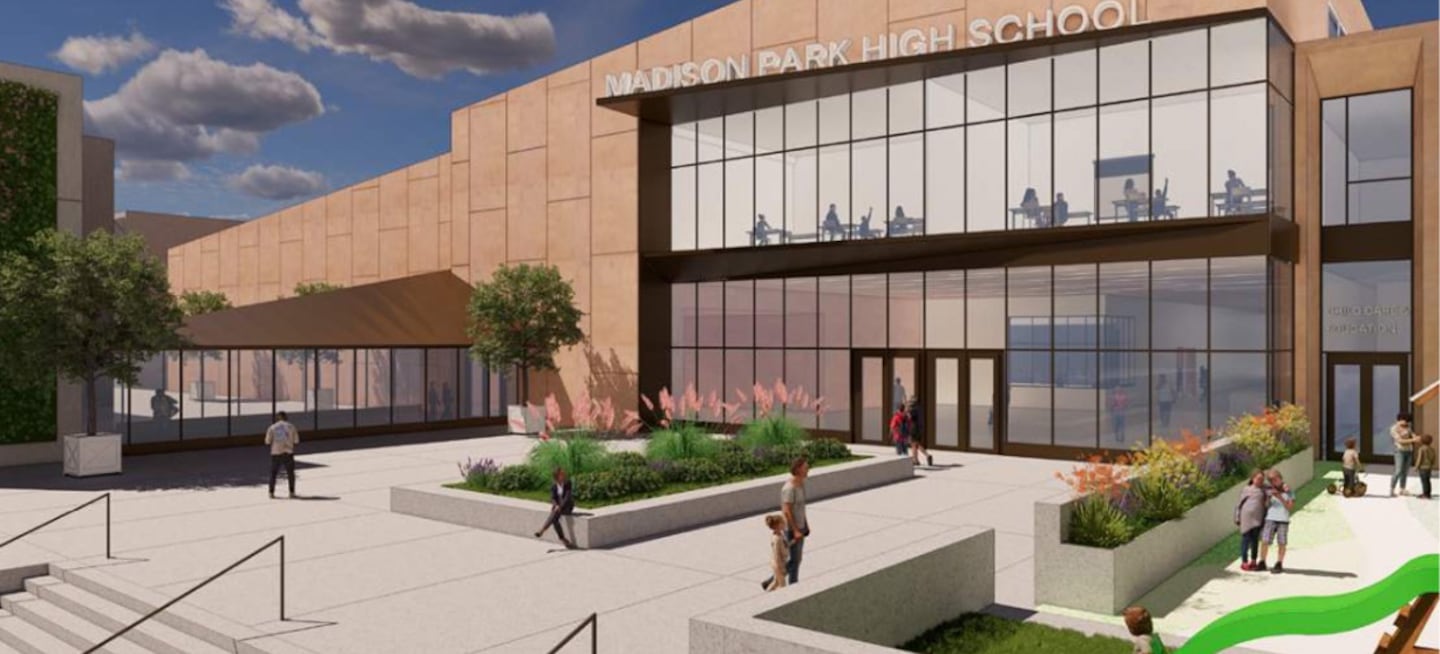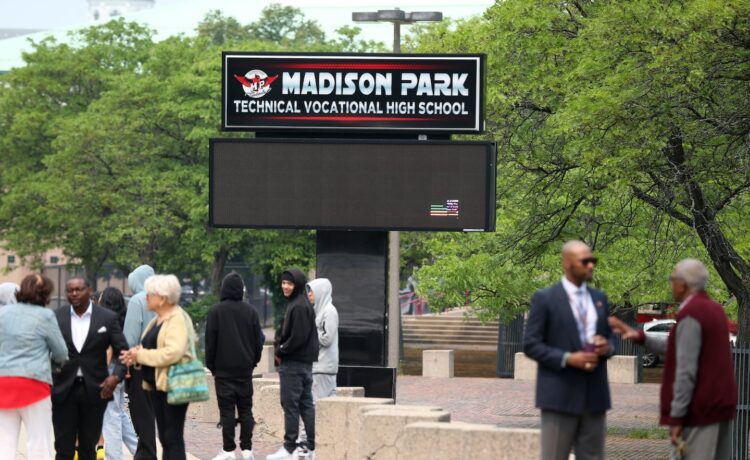“Madison Park is a monster project,” said Greg Maynard of the Boston Policy Institute, who follows school construction closely. “Madison Park is a really old school, it’s in an urban environment, and it’s just expensive to build things in cities. … There 100 percent could be cost escalations, especially with the tariffs that are being proposed.”
Over the last decade, the average cost to build a new school in Massachusetts has more than doubled, to $650 a square foot, according to the Massachusetts School Building Authority, while the cost of renovations has grown nearly as fast. And school projects in Boston are consistently among the most expensive.
Moreover, many school districts have not been able to resist the allure of state-of-the-art campuses dating to 2010 when Newton shattered spending records with a $200 million high school. This expansive vision of a modern high school often entails arts complexes, high-tech labs, gymnasiums, and classrooms with plenty of space to rearrange for lectures, seminars, and group projects.
But the potential cost of a new Madison Park is now so large that Wu said she would seek funding from the state, a reversal of her previous plan to have Boston build Madison Park with its own money, and to have construction begin this year.
At an event last week, Wu said the city has worked with community members to envision a “modern, updated, beautiful Madison Park campus. … We’re taking the first steps in decades to make that a reality by putting forth some of the designs and feedback and then entering a process to apply for funding from the state.”

Advocates have been calling for the aging facility to be renovated or rebuilt for years, and some expressed frustration Boston waited so long to ask the state for funding. Louis Elisa, a founding member of the Friends of Madison Park, complained that community groups have spent almost three years working with Boston officials on a new design for the school.
“Then at the last minute they said they don’t have the money and they wanted to stop and that puts us back another few years,” Elisa said. “The school is constantly pushed back.”
The proposed new school would be huge: a half-million square feet or more, serving 2,200 students, including about 800 in newly added Grades 7 and 8. It would have state-of-the-art facilities and include an auditorium, performing arts spaces, and a media center.
As important, the school’s career programming would be revamped, a long-standing need, adding multiple new trades such as aviation, environmental technology, and early childhood education. And, more of its shops would be open to the public, as is common elsewhere in the state.
“Partnering with the Massachusetts School Building Authority is a crucial step towards creating a state-of-the-art facility that can serve as a pipeline into the Building Trades Unions, providing students with a highly-skilled union career, and a pathway to the middle class to support our communities,” said Chaton Green, a 2005 graduate and general agent with the Boston Building Trades Unions.
The current campus, built in 1972, is in terrible shape, with out-of-date facilities and an energy efficiency score of 0 out of 100, according to BPS data.
Currently the most expensive school approved by the state is the proposed new high school in Revere, which is set to cost almost $500 million.
The move comes as Wu gears up for her first reelection bid, with her handling of Boston schools already under fire, including from challenger Josh Kraft. He’s claimed Wu is “0 for 3” in big promises, including her 2022 announcement of the Green New Deal for Boston Public Schools, a multibillion overhaul of school facilities that includes Madison Park.
The district already devoted $100 million in this year’s capital budget to Madison Park and spent multiple years meeting with the community. Construction was once due to begin this spring.
Now, that schedule has been reset with the city’s request for state funds; the state authority won’t decide on what it will fund until December. Approval, though, would trigger yet a new round of planning that could take years and require duplication of planning efforts the city has already spent money on.
Boston officials insist the city is committed to a new Madison Park with or without state help. It could be either a new building or an expansion and renovation, according to city documents, but a city official said finding adequate temporary space for students while the existing school is renovated would be challenging.
The move to seek MSBA assistance comes a year after Boston canceled plans to move the O’Bryant School of Math and Science, which shares a campus with Madison Park and which would have freed up space during renovations. The proposed redesign would only apply to Madison Park and a few shared spaces; the future of the O’Bryant remains up in the air.
The state School Building Authority provides partial reimbursement of constriction costs, based on factors such as property wealth and demographic data of the school district. For example, the authority agreed to reimburse Boston about 64 percent of eligible costs, or about $30 million for the Carter School, which is due to open fall 2025.
City officials said seeking state funds was the best option to ensure corners were not cut in the costly rebuild. In a community meeting last month, Boston officials presented two options for Madison Park: a $700 million to $720 million renovation that expanded the school’s main building or a new building costing $680 million to $700 million.
“We believe this is the clearest and most financially responsible path to deliver the full, promised vision of Madison Park as a cutting-edge Career Technical Education school serving students in Grades 7-12 that’s the gateway to good jobs in Boston,” a city spokesperson said.
If the city advances in the MSBA pipeline, it will then have to go through the agency’s lengthy planning process, meaning the start of construction will not begin for at least several years, after another feasibility study and other work.
“My understanding is that you have to start everything all over again,” said Robert Jenkins, president of the Madison Park alumni association. “That’s money down the drain. It’s crazy.”
A city official insisted work that has already gone into the project will not go to waste but will inform the version Boston submits to the state. Still, Boston would need to hire a new project manager, among other duplicated efforts, the official acknowledged.
Boston has been successful in getting MSBA to fund new school projects in recent years, including the Ruth Batson Academy and the Shaw-Taylor elementary school merger. But approval is far from certain.
“What is plan B if we do not get approved through the MSBA?” asked Ivelisse Caraballo, an alum of the school and director of the Collaborative Parent Leadership Action Network. “That’s not guaranteed funding.”
Christopher Huffaker can be reached at [email protected]. Follow him @huffakingit.















